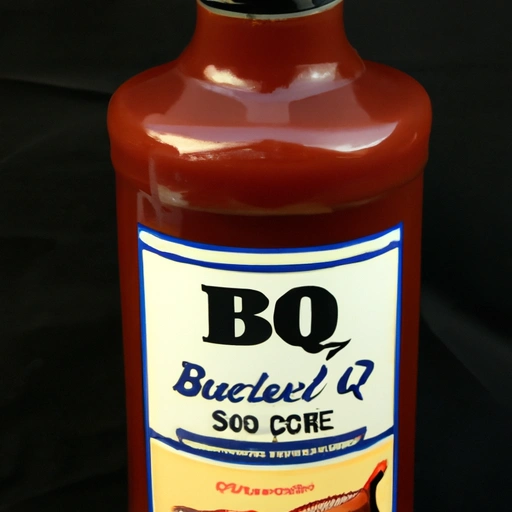BBQ Sauce
Description

BBQ sauce is a beloved condiment with a rich blend of tangy, sweet, and smoky flavors, making it a favorite in kitchens worldwide. Traditionally used in American barbecue, this sauce has transcended its origins to become a global sensation. BBQ sauce typically combines ingredients like tomato paste, vinegar, sugar, molasses, and an array of spices and flavorings, which may include mustard, onion powder, garlic powder, smoked paprika, and more. The consistency and flavor profile can vary widely, from thick and sweet to thin and vinegary. It's a highly adaptable ingredient that can be tailored to complement a variety of dishes, satisfying diverse palates.
Common uses
BBQ sauce is widely used as a marinade, a basting glaze for grilling meats, or as a flavorful condiment. It's commonly slathered on ribs, chicken, and brisket, or used to jazz up burgers and sandwiches. Additionally, it serves as a dipping sauce for fries, nuggets, and vegetables. The culinary versatility of BBQ sauce extends to its ability to be incorporated into stews, baked beans, and even pizza, offering a quick way to add depth and character to a dish.
Nutritional value
Calories
A typical serving of BBQ sauce (about 2 tablespoons or 30 milliliters) contains approximately 60 kcal (251 kJ).
Protein
BBQ sauce generally has a low protein content, providing less than 1 gram per serving.
Fat
Most BBQ sauces are low in fat, with less than 1 gram per serving. However, some recipes may include oil or mayonnaise, increasing the fat content.
Carbohydrates
Carbohydrates are present mainly in the form of sugars, with an average of 12-17 grams per serving (30 milliliters or about 2 tablespoons).
Vitamins
While not a significant source of vitamins, some BBQ sauces may contain small amounts of vitamins A and C due to ingredients like tomatoes and spices.
Minerals
Depending on the recipe, BBQ sauce can offer trace amounts of minerals such as potassium and magnesium.
Health benefits
BBQ sauce can contribute to a balanced diet when used in moderation. The tomatoes in the sauce provide antioxidants like lycopene, which may support heart health. Certain spices may also have anti-inflammatory properties and contribute to overall wellness.
Potential risks
Overconsumption of BBQ sauce can lead to excessive intake of sugar and sodium, which may increase the risk of health issues like obesity, hypertension, and diabetes. It's important to use BBQ sauce sparingly, especially for individuals monitoring their sugar or salt intake.
Common recipes
BBQ sauce is the star in recipes like classic BBQ ribs, pulled pork, and BBQ chicken. It's also used in a variety of dips and spreads for sandwiches and burgers.
Cooking methods
The sauce is often applied during the last stages of grilling or baking to prevent burning due to its sugar content. It can also be added to slow-cooker recipes to infuse flavor into meats and beans.
Pairing with other ingredients
BBQ sauce pairs wonderfully with rich meats like pork and beef, as well as chicken and seafood. It complements smoky and spicy flavors and can be balanced with milder sides like coleslaw or cornbread.
Summary
BBQ sauce is a versatile and flavorful condiment that has been embraced by cultures around the globe. Its complex flavor profile can enhance a wide range of dishes, from traditional barbecue to innovative culinary creations. When using BBQ sauce, it's important to consider its nutritional content and pair it with complementary flavors to create a harmonious dish that appeals to a variety of taste preferences.